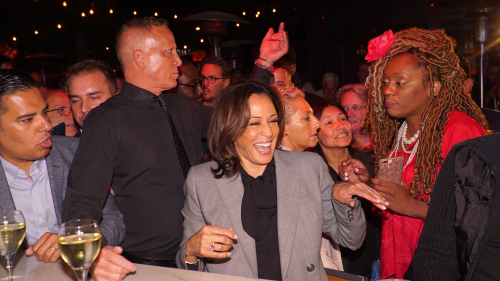
Kamala Harris's 2024 presidential campaign is embroiled in controversy following the appointment of Brenda Abdelall as its Arab-American outreach director. Abdelall, an Egyptian-American lawyer and former Department of Homeland Security official, is facing significant backlash over comments she made in 2002, where she suggested that Zionists exert excessive control over American politics. These remarks, which echo longstanding anti-Semitic tropes, have sparked a debate about the implications of her role in Harris's campaign.
Abdelall's comments came during an interview at the American Muslim Council's annual convention, where she stated that "The Zionists have a strong voice in American politics" and implied they were controlling much of it.
https://x.com/ReutersLegal/status/1829179705016074579
The appointment of Abdelall, who has a history of anti-Israel activism, is seen as part of Harris's broader strategy to engage with Arab-American voters.
However, this move has alienated many within the Jewish community and beyond, who are concerned about the direction Harris's campaign might take regarding U.S.-Israel relations.
https://x.com/ShelleyGldschmt/status/1823535745396826429
Harris's campaign has defended Abdelall, emphasizing her work at DHS, including her role in the country's first National Strategy to Counter Antisemitism. Despite this, the controversy over her past remarks continues to grow.
Abdelall's appointment is not an isolated incident within Harris's campaign. Several other advisers with similarly controversial views have also joined the campaign, raising further concerns. For example, Phil Gordon, Harris's national security adviser, is currently under congressional investigation for his ties to an Iranian government influence network. Additionally, Ilan Goldenberg, who serves as Harris's liaison to the Jewish community, has faced criticism for his involvement with the anti-Israel group J Street.
The backlash against Abdelall's appointment underscores the delicate balance Harris must strike as she seeks to court both Arab-American voters and maintain support within the Jewish community. The controversy also highlights the broader challenges faced by the Democratic Party as it grapples with divisions over Middle East policy and U.S.-Israel relations.
Harris's decision to bring on Abdelall, along with other advisers who have been critical of Israel, could have significant implications for her campaign and her standing with key voter blocs. As the 2024 election approaches, how Harris navigates these controversies will be closely watched by both supporters and critics alike.











